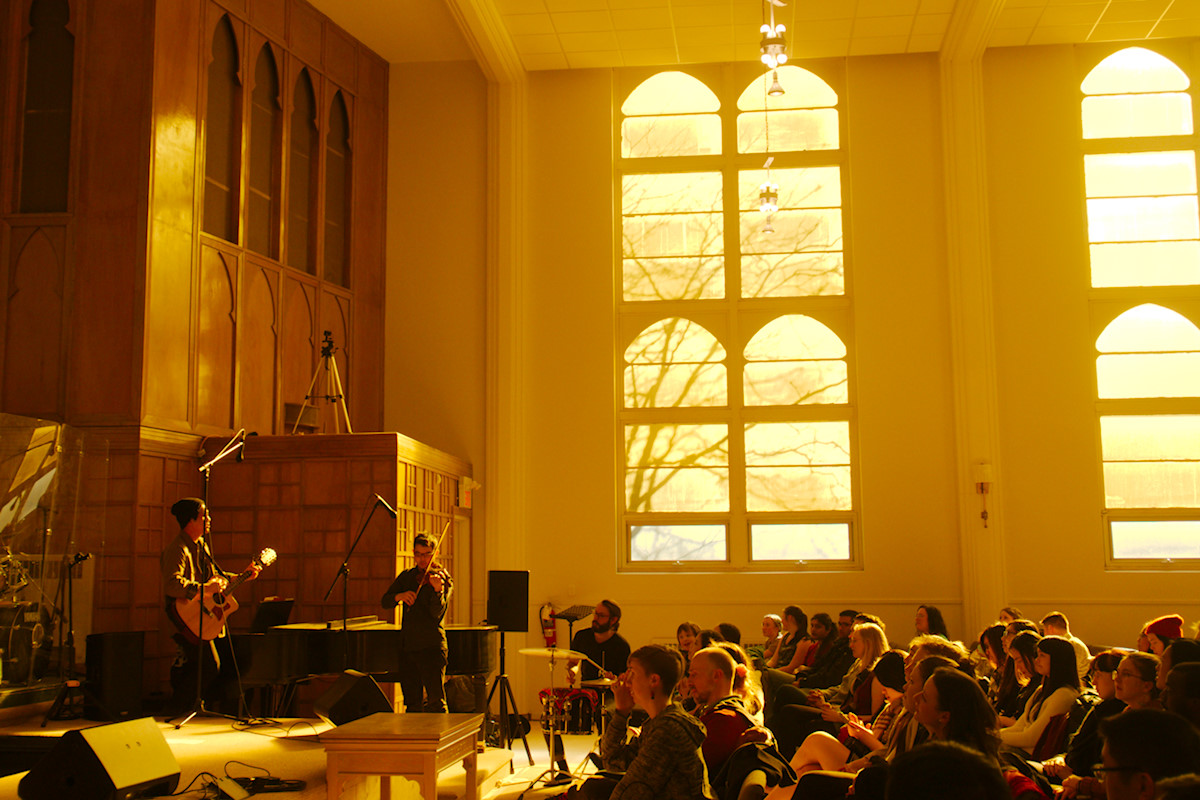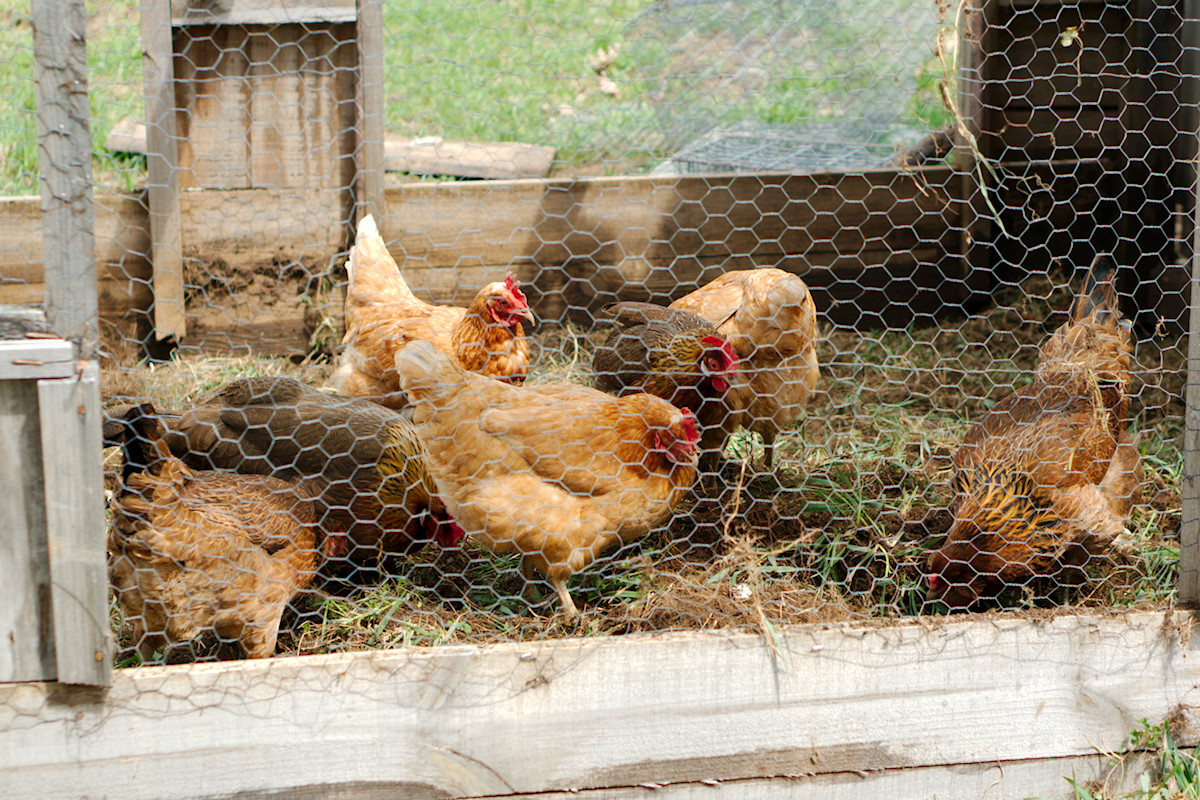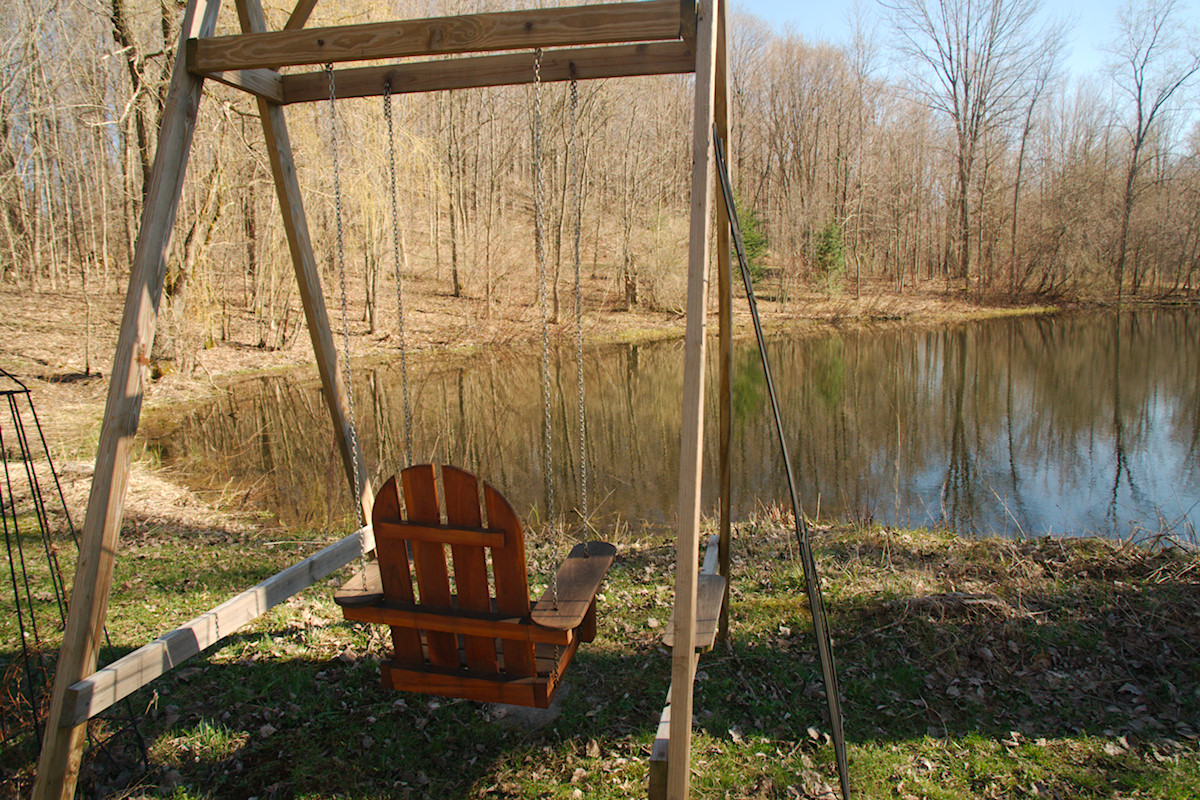Get posts by email
A childhood of belonging
May 4, 2017
This is the second post in The Evolving Journey of Faith blog series.
Faith for me has always been wrapped up, like a ball of yarn, with family and church. God, family, and church; I was raised in the rich soil of all three.

Family and Church life, one in the same
Like my parents before me, I was raised in a Pentacostal church. I attended church with grandparents, aunties, uncles and cousins. And my relatives that did not live in the same community as me went to similar churches in their own communities, scattered across Western Canada.
Pentacostal can mean a lot of things to different people. To keep it simple, we were moderate Pentacostals, it was not a fundamentalist church, and we were not a fundamentalist family, but we were absolutely Evangelical. It was a "born-again" church culture. And there was a pretty heavy emphasis on "born-again" as the metric for determining who was really saved.
When I say I grew up in church I mean I attended church 3 times a week. Sunday morning, Sunday evening and Wednesday night, which switched to Friday night youth group as a teenager. As a child, my entire extended family, grandparents, aunts, uncles and cousins shared a similar faith tradition. I was steeped in church, and family.

Family life confirmed what I was taught at church, namely that Jesus loved me and I was called to live as a disciple of Christ. There were a lot of other teachings that came with this upbringing, messages implied and explicit. Not all of them are things I believe today. But I don't have a lot of criticism for the church experience of my childhood because an evolving faith is not just a personal journey but a collective, community journey also.
Perhaps more importantly, I wasn't hurt by the teaching or culture of my religious upbringing. I was not abused by those in power, including my parents. My faith was not just a personal belief, it was a community to which I belonged, by birth and later, by choice.
Maybe if I had experienced a sense of not belonging, of being different; if I had been an outcast in anyway or abused by those in power, I would have made a different choice.
I think the most significant factor for my easy acceptance of the faith of my childhood was the consistency between home and church life.

Consistency & Belonging
There was no disconnect between what was taught at church and what was lived at home. My parents, whom I have always esteemed, even in my teen years, lived their faith with generosity and honesty. They were not one person on Sundays and another person the rest of the week. There was nothing we did as family that we hid from our church community or our extended family, which was basically the same thing.
This is not to say my parents were infallible, but what I recall as the defining truth of my childhood was love. We may not have been a highly intellectual, questioning sort of family (those traits were not encouraged in my faith tradition), but my parents loved well, and still do. Their lives were marked by love for God, love for each other, love for family. There was a continuity in all the grounding relationships and routines of my life, which included my clutch of Christian friends in the public school I attended.
I was eager to be a part of my community, and maybe because of my loyalist tendencies I wanted to conform and comply (for the most part, there was a minor rebellion in my teen years) to the community expectations.
I had a golden childhood. I grew up in one community, one church, an intact family, a connected extended family. I don't have any recollection of ever being the outsider. I was deep inside the center of love and belonging.

That belonging was a gift, but in some ways it also set me up to not really "get" a large part of the gospel - the welcoming acceptance of the outsider, the stranger, the outcast, the marginalized.
An immature view of the Gospel
My framework for the gospel was a narrow view of salvation and right and wrong. It was a foundation of faith in black and white and absolutes. You were in or you were out.
However, the teaching of Jesus the Christ and the gospel, the good news, take us higher and deeper, inviting us to grow beyond easy answers and tribalism. Jesus was inclusive, radical, system shaking and power structure breaking. Most of which was lost on me because I was in the system. (I didn't meet this Jesus till I was in my twenties and early thirties.)
I thought the gospel was saying the right prayer and accepting that Jesus was a bridge to God, thereby securing eternal salvation. I'm not here to debate the accuracy of this interpretation, but I stand by my conviction that this is a myopic view of our relationship with the Divine, with creation and with humanity. The gospel is a much bigger, creative, life-giving story than that.

Growing up, I understood the message of the gospel to be about choosing Jesus, living a holy life, and making disciples (which is to say more people who did the same). By virtue of nature and nurture, or some combination of them both, making the right choice was of prime importance in my childhood understanding.
This spilled over into my early adulthood years. I've always tried to live my life in the "right" way, following the teaching of the right authorities, mostly as a means to quell latent anxiety. If I do the right thing, follow the right teaching, this other thing I fear won't happen.
I had not experienced a lot weakness in my life; physical, mental, emotional, or spiritual. I was strong, confident, and secure; in my rightness and my familial belonging. I was in. I was never out.
You know where this is going, don't you?
I left childhood and forged an adult path with my husband, slowly moving out from the center. In my convictions and lifestyle choices - homebirth, homeschooling in freedom, leaving the country of my birth, living as a resident alien in the United States for eleven years, returning as an outsider to the country of my birth (a western anglophone in francophone, separatist leaning QC) - I was continually moving out from the center of defined belonging, into the margins and the fringes.

I was spiralling out from center into territory where God wanted to meet me as Jesus met the outcasts, the marginalized, the other; the people for whom the system didn't work so well. I was leaving a sense of belonging that was rooted to a particular place (central Alberta, Canada) and rooted to a conservative interpretation of scripture.
Next post in this series: Growing up with the Bible.
Filed Under
Part of Series
You can subscribe to comments on this article using this form.
If you have already commented on this article, you do not need to do this, as you were automatically subscribed.






Jacinda on May 8, 2017, 8:17 p.m.
This post blew me away - so much so that I couldn't comment straight away. "I grew up in one community, one church, an intact family, a connected extended family" was what caught my breath as it reflected back to me how broken my own childhood was from your perspective of wholeness. A separated family and extended family, a fairly broken mother and no faith community was my normal and like you I too feel I had a "good" childhood (I was loved). What would a life look like that begins so whole? Having read your blog for so long and feeling in some ways connected to you, your story and the issues you grapple with, your post starkly contrasted your beginnings with mine. It reminded me how it is exactly this brokeness which is the lens through which I make sense of the world and why my spiritual life has always had to have the broken and outcast at its centre. Deep gratitude for your words.